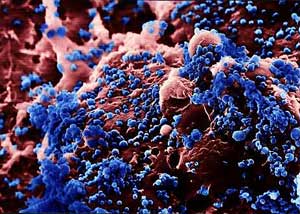Experts Issue Urgent Warning: H5N1 Virus May Survive Longer Even in Humid Conditions
Experts have issued a concerning warning: the H5N1 virus may survive for a longer period, even under humid conditions. Dr. Robert Webster from the United States stated that the strain of H5N1 virus that caused an avian influenza outbreak in Hong Kong in 1997 lasted only two days at 37°C, whereas the current strain of H5N1 can survive up to six days. 
Historically, avian influenza viruses have been highly active and easily transmissible among birds during the cooler months in the Northern Hemisphere (from October to March). However, it is now capable of surviving for at least a week in hot and humid conditions—the typical climate of Southeast Asia.
Particularly alarming is the fact that this virus can now adapt to aquatic environments, increasing the risk of disease transmission if drinking water is not properly disinfected. This warning was presented at a two-day seminar on avian influenza held on May 3-4 in Singapore.
* The U.S. government announced a detailed plan yesterday to counter the avian influenza outbreak. The plan outlines 300 tasks that federal agencies must complete, assuming the worst-case scenario of a bird flu pandemic occurring in the U.S., leading to a crisis lasting 18 months and resulting in 1.9 million deaths.
THANH TRÚC

















































